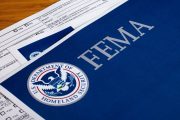
A Texas judge has ruled that Texas abortion centers can stay open in spite of the governor’s orders to stop non-essential medical procedures to conserve medical resources for coronavirus patients.
A March 22 executive order by Texas Governor Greg Abbott declared,
Beginning now and continuing until 11:59 p.m. on April 21, 2020, all licensed health care professionals and all licensed health care facilities shall postpone all surgeries and procedures that are not immediately medically necessary to correct a serious medical condition of, or to preserve the life of, a patient who without immediate performance of the surgery or procedure would be at risk for serious adverse medical consequences or death, as determined by the patient’s physician.
A spokesperson for Governor Abbott later confirmed to the Associated Press that the order indeed applies to “abortion in most cases.”
Texas Attorney General Ken Paxton further clarified the order last week with a statement to all licensed healthcare professionals.
“This prohibition applies throughout the State and to all surgeries and procedures that are not immediately medically necessary, including routine dermatological, ophthalmological, and dental procedures, as well as most scheduled healthcare procedures that are not immediately medically necessary such as orthopedic surgeries or any type of abortion that is not medically necessary to preserve the life or health of the mother,” Paxton explained.
{modulepos inner_text_ad}
In response to Paxton’s order, abortion clinics across the state filed suit, prompting a telephone conference on March 26 in which the plaintiffs and defendants participated by counsel.
By Monday, U.S. District Judge Lee Yeakel ruled in favor of the abortion providers. Life News reports Judge Yeakel has a long history of siding with abortion advocates.
In a nine-page ruling, Judge Yeakel placed a preliminary injunction on Paxton’s directive, claiming Governor Abbott’s executive action as written was not problematic, but that Paxton’s “interpretation of the Executive Order prevents Texas women from exercising what the Supreme Court has declared is their fundamental constitutional right.”
“Regarding a woman’s right to a pre-fetal-viability abortion, the Supreme Court has spoken clearly,” he writes. “There can be no outright ban on such a procedure. This court will not speculate on whether the Supreme Court included a silent ‘except-in-a-national-emergency clause’ in its previous writings on the issue.”
Judge Yeakel claimed Paxton’s directive would cause “serious and irreparable harm” and that the benefits of reinstating abortions outweigh the potential harm of failing to preserve personal protective equipment for coronavirus treatment.
“The benefits of a limited potential reduction in the use of some personal protective equipment by abortion providers is outweighed by the harm of eliminating abortion access in the midst of a pandemic that increases the risks of continuing an unwanted pregnancy, as well as the risks of traveling to other states in search of time-sensitive medical care,” writes Yeakel.
Lawyers for Texas argued the state was prompted to take extraordinary measures because of the unprecedented public-health crisis crippling the state’s and country’s medical systems.
“The State’s efforts to stop the spread of COVID-19 are far-reaching precisely because COVID-19 presents a grave threat to public health,” the lawyers wrote.
“Never in our lifetimes have so many Texans been threatened with severe illness or death due to a pandemic sweeping the globe,” they added.
Paxton’s attorneys argued that the abortion lawyers provided no evidence that abortion was an essential medical procedure during a pandemic and that the abortion providers “have no right to special treatment.” Citing the 2007 U.S. Supreme Court ruling in Gonzales v. Carhart, the attorneys said the law does not provided abortion doctors “unfettered choice in the course of their medical practice, nor should it elevate their status above other physicians in the medical community.”
Paxton’s attorneys also noted that the state of Texas is expecting a surge of COVID-19 cases “in the very near future” and that the executive order was intended to help preserve “adequate medical supplies, hospital capacity, and healthcare workers to prevent the system from collapsing.”
Still, Judge Yeakel ruled in favor of the abortion clinics: “The court finds that a temporary restraining order will not disserve the public interest.”
Statesman reports Yeakel’s order is good until April 13. A phone hearing will then reexamine the preliminary injunction.
Meanwhile, Paxton spokesman Marc Rylander said the ruling will be challenged.
“We are disappointed in the court’s decision. We’ll seek appellate review promptly,” he said.
Raven Clabough acquired her bachelor’s and master’s degrees in English at the University of Albany in upstate New York. She currently lives in Pennsylvania and has been a writer for The New American since 2010.




